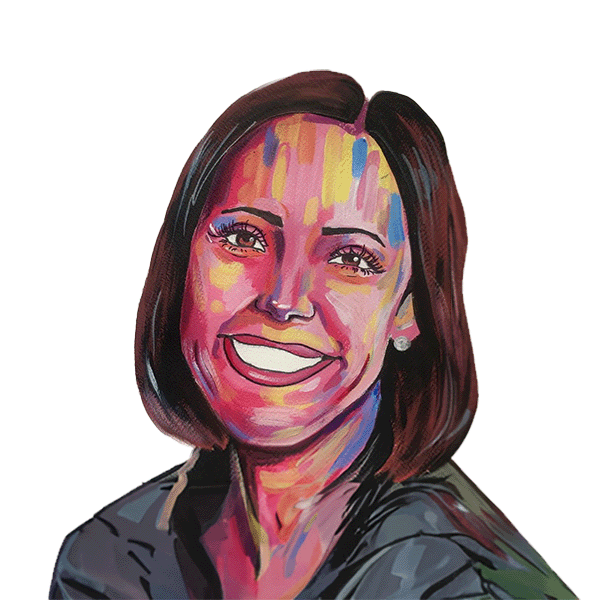Don't Give Up On Diversity, Equity & Inclusion

There’s a term that’s been working its way around the business-world of late: Diversity Fatigue. It’s become a catch-all phrase used by anyone going through difficulties when working with DEI (Diversity, Equity & Inclusion). However, using phrases like “Diversity Fatigue” is counterproductive, especially when you’re actively making significant positive changes. A phrase like this actually holds you back from achieving your intended goals of fostering a more diverse, inclusive, and equitable workplace. While for those of us dedicated to HR and particularly DEI these efforts may be full of challenge, occasional frustration, and scepticism, giving it to using the phrase Diversity Fatigue could create less buy-in and potential spiralling down any previous progress.
And where are we with our work in DEI at Spotify? We’re as committed to improving the experience of all our band members so they can thrive, as we’ve ever been. And our aspirational goals continue to guide our work. So, no matter how fatigued we might feel, at Spotify we believe it’s imperative to continue raising the bar and creating equitable spaces. Of course, that does not mean working your DEI team so hard they get overwhelmed, but it does mean recognising that Diversity Fatigue is a counter-productive term. Why? Because it’s a term we hear from those who are not truly focussed on pushing progress. It’s something that non-believers (of DEI work) give as an excuse not to play their part. Or those that have lost their focus and choose instead to say: “I’m tired, not enough progress is being made, let’s move on.” This mindset runs contrary to our fundamental beliefs about growth mindset and ultimately for our work to build, an inclusion mindset approach to leadership
Let’s look at this from another angle – how often do you come across professionals talking about ‘marketing fatigue’ or ‘accounting fatigue’? Zero. Could you imagine a chat among the leadership of a finance organisation telling their CFO that they are tired of doing accounting, or that rules keep on changing, that the financial authorities are raising the bar, that they could not see the benefits of working on accounting? Could you imagine a set of marketeers telling their CMO, that they have tried to increase the users numbers, but that it is too hard and that they believe that it should happen organically and that they should not be made accountable for the results because they are having ‘marketing fatigue’? No, absolutely not.
Why Does Progress Feel So Far Away?
The bar keeps getting raised, and it should do, in order to reach equity. It’s as simple as that. When it feels like you’ve taken one step forwards and two leaps backwards, it’s not because you have not made progress, it’s because this subject is evolving just as fast as the world around us. It’s because change is happening, and quickly.
This is the beauty of DEI – there isn’t a final and unique destination, instead there are new milestones to achieve. There are always more opportunities to develop the best talent, or another chance to create a product or a campaign that engages more users. Like in marketing or accounting, we are always raising the bar.
What Do We Need?
In a game of Monopoly©, when you advance three spots you may hit a snag and get sent back to ‘Parking’. Just like the game, in order to win, you have to have resilience, and you have to play many rounds, iterate and use your data to inform your next move. It’s inevitable that you’ll get bored, tired, frustrated, and you’ll even wonder why you’re playing. But to win, like in Monopoly©, we all have to stay focused and clear on what the ultimate goal is. That’s why, talking about ‘Diversity Fatigue’ is like having a tantrum in the middle of the game because you are not advancing and then flipping the board over. The people who claim that they are tired of the DEI conversations and work, are looking for an excuse to avoid sticking at the work required to create change to achieve equity. It’s important to remember that the conversation is the first step, not the ultimate goal.
We must also fight the misunderstanding that the business world is ‘tired’ of talking about DEI. To do that we need to be more focused and strategic. We must choose to do the DEI work that can be more impactful. That means less talking and more doing, but with intention. This is not about adding more headcount, or resources, to get a higher volume of work done, but about doing more with less. We need DEI professionals that are eager to proactively deepen their knowledge of historical contexts – global and local. We need those who are keen to learn about new advances in neuroscience and behavioural economics, to understand the laws of their countries and how they change, data insights, structures of power and how all these impact our ability to assess effectiveness of current processes and practices. The aftermath of the recent years have led to more organisations making token hires and giving grandiose titles to those who are passionate, without real commitment to support the work. While passion is important to keep you going, there is expertise needed to create change.
They are the ones who really understand the levers and pulleys that can have an impact, and who don’t shy away when the going gets tough. You’d be unlikely to hear the words “Diversity Fatigue” from one of these professionals.
While most DEI teams are embedded in the People / HR teams, their work should be integrated into every function of the organisation, preparing every employee to be a confident DEI ambassador, integrating DEI principles into their work (e.g. inclusive marketing, removing barriers for customers from marginalised communities to access the products and services, building a diverse supplier pipeline).
DEI As A Part Of Spotify’s People Strategy
At Spotify, embracing constant change and controlled chaos is part of our people manifesto, and DEI has been part of our People Strategy for a long time – it was never a fad. That means we don’t get distracted by buzz-terms or feel tempted to give up because it’s difficult. It’s part of our culture.
For example, our practices and collaboration with teams like People Analytics have propelled Spotify’s DEI practices. Organisations like Spotify, that are committed to DEI (and not ‘tired of it’) are increasing their focus on data-informed decision-making when setting global DEI strategies. And improved availability and accessibility of people data gives DEI professionals the ability to analyse and translate that data into meaningful metrics and goals for business leaders. This is more important than ever. Data is critical to understanding your workforce, the talent pool, how you are progressing in your hiring, promotions and retention. Data provides a stronger evidence-based approach to executing DEI programs and inoculates against the ‘diversity fatigue’ virus, as you can see the progress (as well as the areas that you need to continue working on).
Let’s All Give A Resounding “No” To Diversity Fatigue
DEI work is dynamic and complex, and there are days when you feel like you’ve taken one step forward, only to take two leaps backwards. But that does not give us the excuse to give up, instead we like to see it as an impetus for change, innovation and persistence.
A post-pandemic world has proven HR professionals are resilient. But we also know that very few decisions made in times of fear are solid. Now is the time to consolidate so that the positive strides we’ve been making do not get paused or set aside, or simply swept under the carpet. We must realise that it is possible to do more with less.
At Spotify, and amongst other DEI professionals, it is foreseen that we can be smarter with our work, embedding the results and changes deeper into the business so that they become the norm. So if you’re feeling frustrated, I ask you not to quit your DEI work. Instead, look to the HR Community as your support network. We need to band together and point-blank refuse the existence of such a thing as ‘Diversity Fatigue’. This way we are not giving each other and our leaders the permission to give up. Most of us already know from experience – it’s together and with community (and only then) that we can continue to make progress towards a more equitable future.




